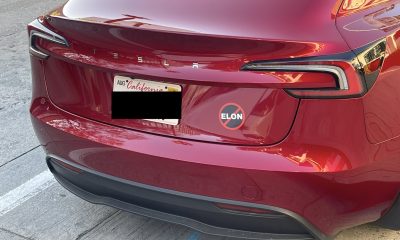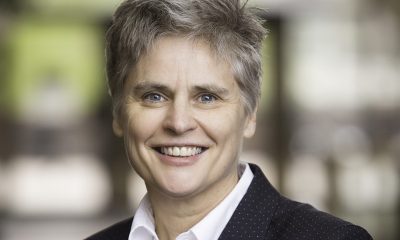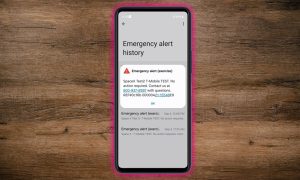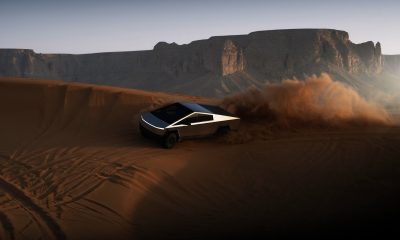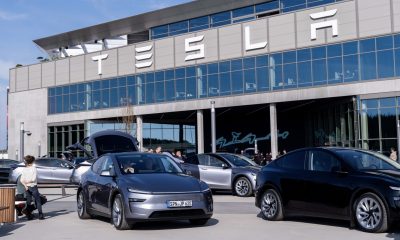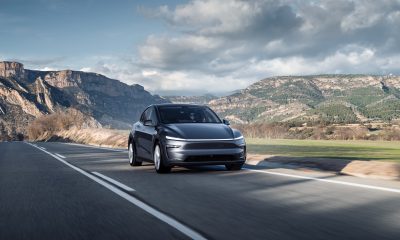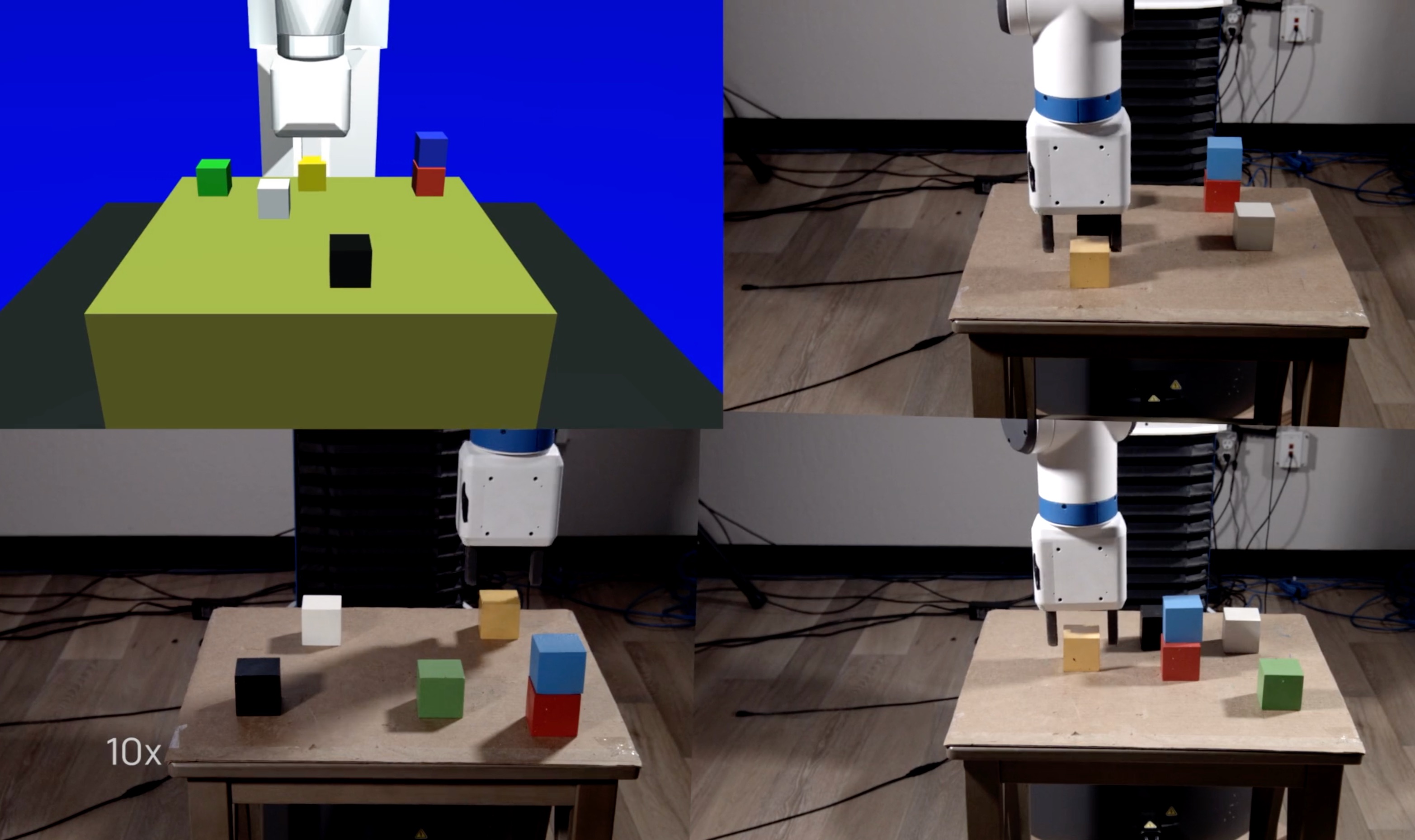

News
Elon Musk’s OpenAI is training robots through virtual reality (VR)
Elon Musk’s non-profit AI research company OpenAI announced that it had successfully trained its artificial intelligence powered robots to perform a task after watching it once in virtual reality. This was accomplished by showing the robot how to stack a series of colored blocks in a virtual reality simulation. The robot was then able to successfully repeat the task after watching it only once.
The work done by OpenAI focused on performing the task in a simulated, virtual environment to enable more control over the specific nuances associated with tests such as lighting, shadows and backgrounds noise. Injecting simulated variety into the equation forces the robot to filter out noise while focusing only on the important elements needed to complete the task, much like human brains do without requiring conscious effort.
Finally, when the robot is presented with a similar environment in the physical world, it was able to translate the actions it observed in the virtual world into real actions. The robot was able to successfully stack a series of blocks in the same order it previously witnessed in the VR world.
“Our robot has now learned to perform the task even though its movements have to be different than the ones in the demonstration,” Josh Tobin, a member of OpenAI’s technical staff explained. “With a single demonstration of a task, we can replicate it in a number of different initial conditions. Teaching the robot how to build a different block arrangement requires only a single additional demonstration.”
This is significant because it has the potential to drastically speed up the time in which robots can be programmed. Instead of requiring hundreds of hours of manual coding, debugging and bug fixing, a robot could be trained to perform a task in a matter of minutes.
One look at the Tesla vehicle assembly line in action makes it clear just how many robots are at work and thus, the immense amount of effort that was put into programming them to perform each task. This is the very same effort that is underway at Tesla right now as it programs its alien dreadnaught army of robots to assemble the Model 3.
News
California proposal to allow self-driving tests for heavy-duty trucks
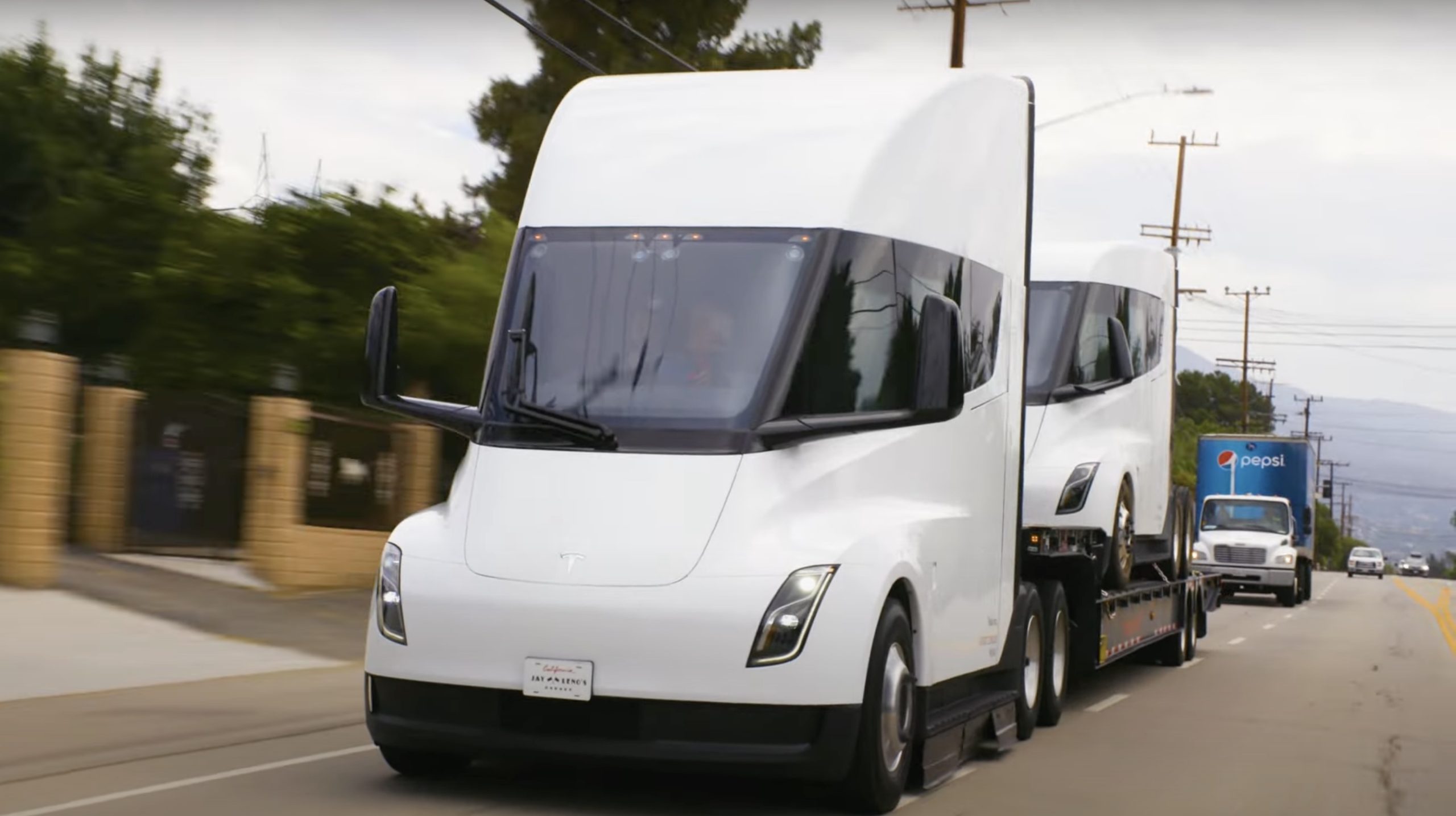
A new proposal in the state of California would allow initial testing of self-driving heavy-duty trucks, as Tesla and others aim to bring their driverless technologies to market with Class 8 trucks and other large vehicles.
On Friday, the California Department of Motor Vehicles (DMV) said that it’s proposing self-driving vehicle tests be allowed on public roads for heavy-duty trucks and other large vehicles, as detailed in a report from Reuters. The news comes as heavy-duty vehicles about 10,001 pounds are currently unable to utilize public self-driving tests in California, as well as others such as Texas, Arizona, and Arkansas.
The proposal would restrict autonomous testing for semi-trucks and other oversized vehicles to specified, pre-selected routes that would be pre-determined to be legal for size, weight, and loading requirements. It would also ban testing these vehicles on city streets, with selected routes primarily including major highways.
The state would also prohibit testing of specific heavy-duty vehicles until further notice under the proposal, including household movers, commercial vehicles used to transport passengers, oversize loads, bulk liquids, or hazardous materials.
👀 A look inside Tesla’s Semi factory
— TESLARATI (@Teslarati) March 8, 2025
READ MORE ON SELF-DRIVING FOR HEAVY-DUTY TRUCKS:
The DMV plans to hold a public hearing on the proposal on June 10, after which point it would be allowed to move forward with the agency.
California has been preparing regulations for autonomous trucking since at least last August, when the state submitted an initial draft for such a legal framework.
The state is also evaluating whether light-duty vehicle testing requirements should be updated. Currently, the state requires a permit to test self-driving vehicles utilizing a safety driver, before applying for subsequent phases of driverless testing and deployment permits.
To apply for driverless testing permits, manufacturers are required to conduct testing for a minimum of 50,000 miles, while heavy-duty manufacturers would be required to complete at least 500,000 autonomous testing miles under the proposal. Of them, up to 40,000 of the miles are allowed to be completed outside of California.
The news also follows the Trump administration’s aims to accelerate self-driving deployment this week through the expansion of exemptions for certain reporting requirements.
Although Tesla’s Full Self-Driving (FSD) is not currently available for the company’s electric Semi, it’s expected to become available at some point in the future. Tesla has also been spotted testing its FSD on the Semi in and around Giga Nevada, ahead of the company’s plans to launch the software on the Class 8 truck.
Tesla is currently aiming to ramp up production of the Semi, and it’s constructing an expansion to its Gigafactory in Nevada to eventually scale up to volume production.
News
Tesla reservation emails hint at imminent launch in India
Tesla appears to be nearing the launch of vehicle sales in India, as hinted at in a recent correspondence with early reservation holders.
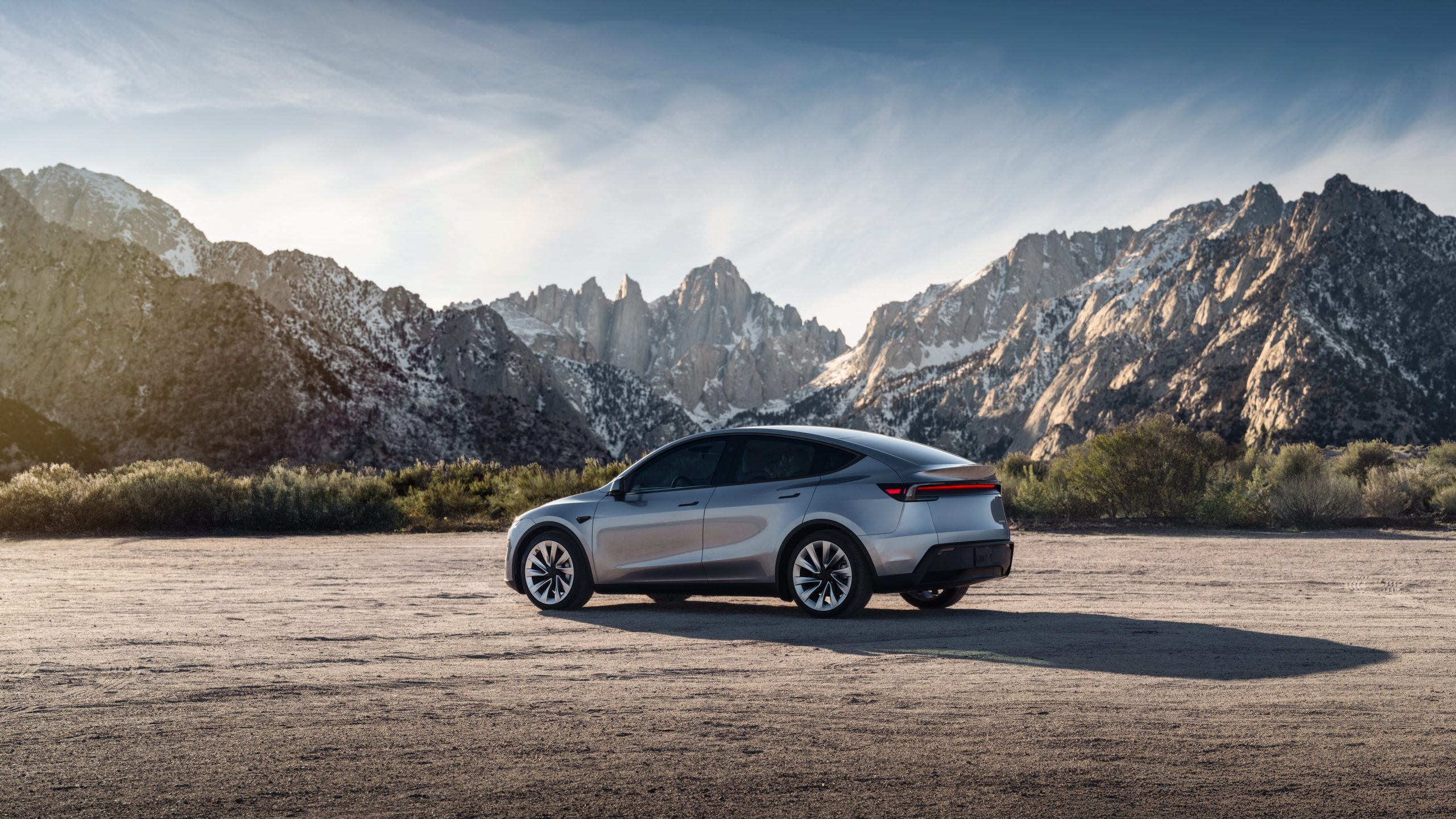
A report this week says that Tesla has sent out a new batch of emails to some of its earliest reservation holders in India, suggesting that the company’s highly anticipated launch of electric vehicles (EVs) in the country could be imminent.
As seen in emails viewed by Bloomberg in a Friday report, Tesla has begun refunding early reservation holders in India, indicating that the U.S. automaker seems to be nearing its official debut in the country. Some Model 3 reservation holders in India initially paid deposits to purchase a Tesla as early as 2016, and they come due to the company having refreshed the vehicle’s design last year.
“We would like to return your reservation fee for the time being,” Tesla writes in the email. “When we finalize our offerings in India, we will reach out in the market again. We hope to see you back with us once we are ready to launch and deliver in your country.”
The launch is thought to be highly consequential for Tesla, as India is the world’s third-largest auto market, and thousands of people in the nation are employed by vehicle and component manufacturing facilities. However, years of talks between Tesla and the government about launching sales and potentially a factory there have hit a standstill multiple times, largely due to disagreements over the country’s high import duties.
Looks like Elon Musk and Indian PM Modi had another meeting recently.
Interesting line there about "potential for collaboration in the areas of technology and innovation." India did hint before that it would like a local Tesla plant.
Giga India? Megafactory India? https://t.co/jlyU2CoKF5
— TESLARATI (@Teslarati) April 18, 2025
READ MORE ON TESLA INDIA: India to hold EV import policy workshop in bid to attract Tesla, other EV makers: report
While many are speculating as to when exactly Tesla could launch vehicle sales in India, several other indicators have also suggested that the maker is getting close to doing so.
Last weekend, a Tesla Model Y with a privacy wrap was seen being tested in India, marking the second such sighting to take place in the past few weeks. The company also officially began the certification and homologation processes for the new versions of both the Model Y and Model 3 in India last month, and it has been hiring and picked out two sites for initial stores in the country, the first in Mumbai and a second in New Delhi.
A Bloomberg report in February also claimed that Tesla was aiming to sell vehicles in India around the third quarter of the year, though models being sold in the country had not yet been revealed at the time.
Tesla India partners with Tata Group on local supply chain: Rumor
News
These Tesla Superchargers are free today for Earth Week
Canada and other countries are missing on the free Earth Week Supercharging map, while the U.S. state of California gets the promo at two sites.
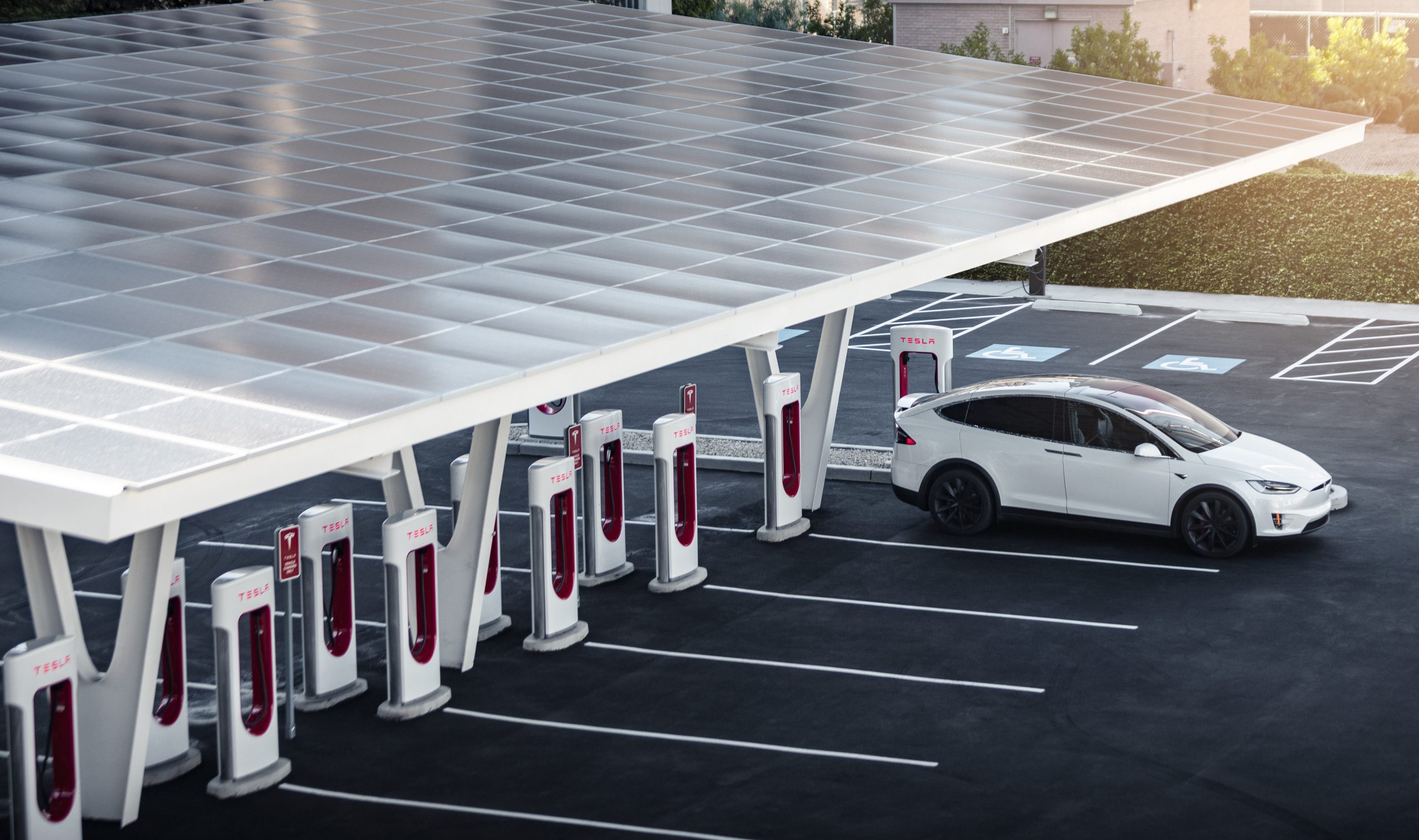
Tesla has made several of its Supercharging stations free in markets around the world over the weekend, in order to commemorate Earth Day, which took place earlier this week.
On Friday, Tesla posted on its charging account on X that it would be offering free Supercharging across 30 select stations on Saturday in celebration of Earth Day and Week. The chargers are set to be free during daytime work hours, and they’re scattered in locations across Europe, North America, and the Asia-Pacific region.
Tesla also says it may have employees handing out “goodies” at some of the sites, though the company didn’t disclose what they would be.
“Closing out Earth Week with free charging at the following Superchargers on April 26th,” Tesla writes. “You might even catch some Tesla employees with goodies!”
In the U.S., the Supercharger stations offering free charging include two located in California, along with one each in Florida, Arizona, Illinois, and New Jersey. The company is also offering free Supercharging in Nuevo León, Mexico, in the city of Monterrey.
You can see the full list of free Supercharger locations below, along with the times the offer is still available on Saturday.
READ MORE ON TESLA SUPERCHARGERS: Tesla’s Hollywood Diner is finally getting close to opening
Tesla Superchargers offering free charging on Saturday, April 26
Europe (9:00 a.m. to 6:00 p.m.)
- Cork, Ireland
- London, UK – Gatwick
- Leeds, United Kingdom
- Aalborg, Denmark
- Rødovre, Denmark
- Espoo, Finland
- Tampere, Finland
- Löddeköpinge, Sweden
- Mantorp, Sweden
- Hamburg, Germany
- Hilden, Germany
- Köln – Carlswerk, Germany
- Dietikon, Switzerland
- Warsaw, Poland – Radzymińska
- Les Pennes-Mirabeau, France
- Montélimar, France
- Jamné, Czech Republic
North America (9:00 a.m. to 6:00 p.m.)
- Santa Monica, CA
- Kettleman City, CA
- Phoenix, AZ – East Mayo Boulevard
- Des Plaines, IL
- Fort Pierce, FL – Peters Road
- Mount Laurel Township, NJ – NJ-73
- Monterrey, NL
Asia-Pacific
- Singapore – Tesla Centre Toa Payoh (10:00 a.m. to 7:00 p.m.)
- Georgetown, Malaysia – Gurney Plaza (10:00 a.m. to 10:00 p.m.)
- Samut Prakan, Thailand – Mega Bangna – IKEA Carpark (10:00 a.m. to 10:00 p.m.)
- Mandaluyong, Philippines – Shangri-La Plaza (10:00 a.m. to 10:00 p.m.)
- Seoul Gangnam, South Korea – Construction Building Floor G (9:00 a.m. to 7:00 p.m.)
- Taipei, Neihu – Service Centre (9:00 a.m. to 7:00 p.m.)
Tesla’s Superchargers in North America opening to non-Tesla EVs
Along with allowing Tesla’s vehicles to charge at Supercharger stations, the company has slowly been rolling out access to other, non-Tesla electric vehicle (EV) brands in North America over the past several months. For example, Superchargers opened to Kia’s EVs in North America on Thursday, increasing the company’s chargers to the over 40,000 DC fast-charging stations and doubling the number of stations owners of the car brand can use.
Other brands with access to Tesla’s Superchargers include Kia parent company Hyundai, Ford, GM, Genesis, Lucid, Mercedes, Nissan, Polestar, Rivian, and Volvo, and Volkswagen and subsidiary Audi are the next brands in line to gain access.
Tesla also runs three-month Supercharger voting periods for owners to cast votes on where they’d like to see new Superchargers built, and the company recently opened its voting round for the second quarter along with revealing the winning locations from Q1.
Tesla Superchargers were over 10 times as reliable as these rivals
-
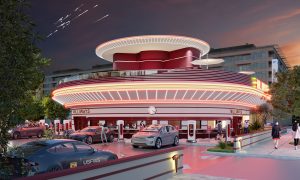
 News5 days ago
News5 days agoTesla’s Hollywood Diner is finally getting close to opening
-
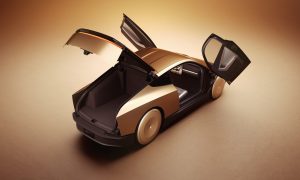
 Elon Musk1 week ago
Elon Musk1 week agoTesla doubles down on Robotaxi launch date, putting a big bet on its timeline
-

 News2 weeks ago
News2 weeks agoTesla’s top investor questions ahead of the Q1 2025 earnings call
-

 News2 weeks ago
News2 weeks agoUnderrated Tesla safety feature recognized by China Automotive Research Institute
-
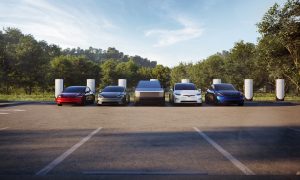
 News2 weeks ago
News2 weeks agoThese were the best-selling EV brands in the U.S. in Q1
-
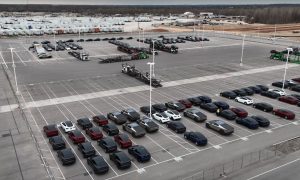
 News2 weeks ago
News2 weeks agoTesla’s vehicles led U.S. EV sales again last quarter: report
-

 News2 weeks ago
News2 weeks agoTesla’s spring update arrives with adaptive headlights and more
-
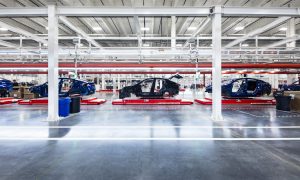
 News2 weeks ago
News2 weeks agoTesla reveals latest Giga Texas production milestone

